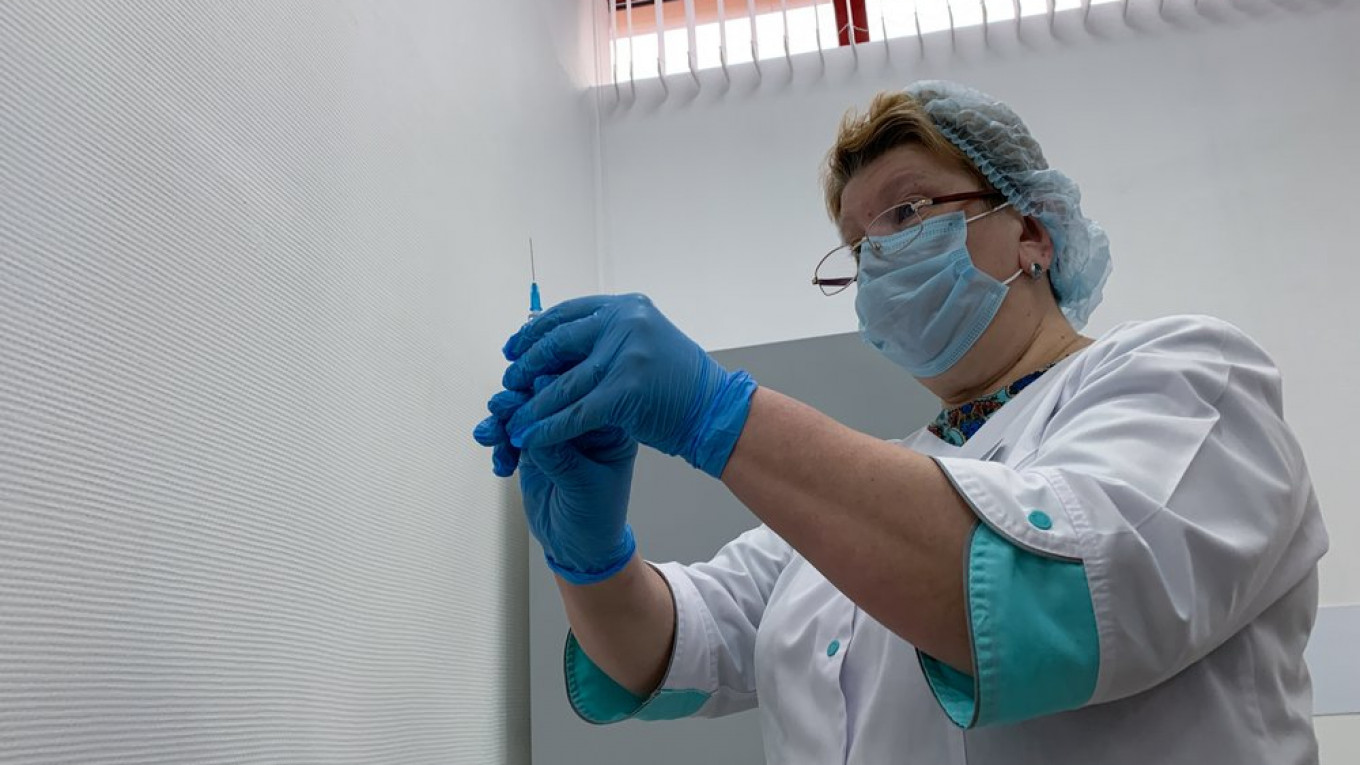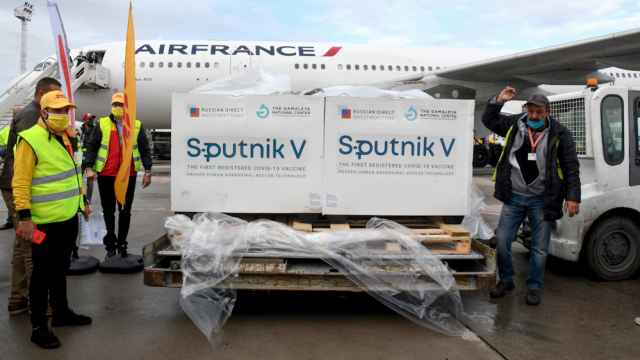The developers of Russia’s Sputnik V coronavirus vaccine said Friday that they have come up with technology that “updates” the jab to protect against new, more-contagious strains of the virus.
Studies suggest that vaccines currently in use provide less protection against the new Covid-19 variants that have emerged in Britain, South Africa and Brazil.
Scientists at the state-run Gamaleya research institute that designed Sputnik V are able to synthesize within 24 hours a virus structure that mimics the new strains, its director Alexander Gintsburg told state media.
“It’s inserted into the used vector the next day and you end up with a genetically engineered design that allows you to use it as a vaccine,” the RIA Novosti news agency quoted Gintsburg as saying.
He noted that discussions are underway to test the new technology on a limited sample group of up to 100 volunteers without mass clinical trials.
“If it provides the same adequate protective effect against the new strain, it can be mass produced immediately,” Gintsburg said.
Russian health officials said Thursday they have documented 78 cases of the British and five cases of the South African strains since first cases were discovered in Russia earlier this year.
Authorities also said last fall that a mutated strain of the coronavirus that causes Covid-19 was discovered in Siberia but did not indicate that it was more contagious or dangerous.
Gintsburg’s promotion of advances with Sputnik V comes amid Russia's comparatively slow vaccine rollout despite peer-reviewed studies showing the jab's 91.6% effectiveness and the approval of two other domestic vaccines. Public polls show widespread mistrust of Covid-19 vaccines over potential side effects, contraindications and a general lack of information about trial results.
Russia has the world’s fifth-highest caseload of coronavirus infections and, according to state statistics, one of the world’s highest death tolls.
A Message from The Moscow Times:
Dear readers,
We are facing unprecedented challenges. Russia's Prosecutor General's Office has designated The Moscow Times as an "undesirable" organization, criminalizing our work and putting our staff at risk of prosecution. This follows our earlier unjust labeling as a "foreign agent."
These actions are direct attempts to silence independent journalism in Russia. The authorities claim our work "discredits the decisions of the Russian leadership." We see things differently: we strive to provide accurate, unbiased reporting on Russia.
We, the journalists of The Moscow Times, refuse to be silenced. But to continue our work, we need your help.
Your support, no matter how small, makes a world of difference. If you can, please support us monthly starting from just $2. It's quick to set up, and every contribution makes a significant impact.
By supporting The Moscow Times, you're defending open, independent journalism in the face of repression. Thank you for standing with us.
Remind me later.






